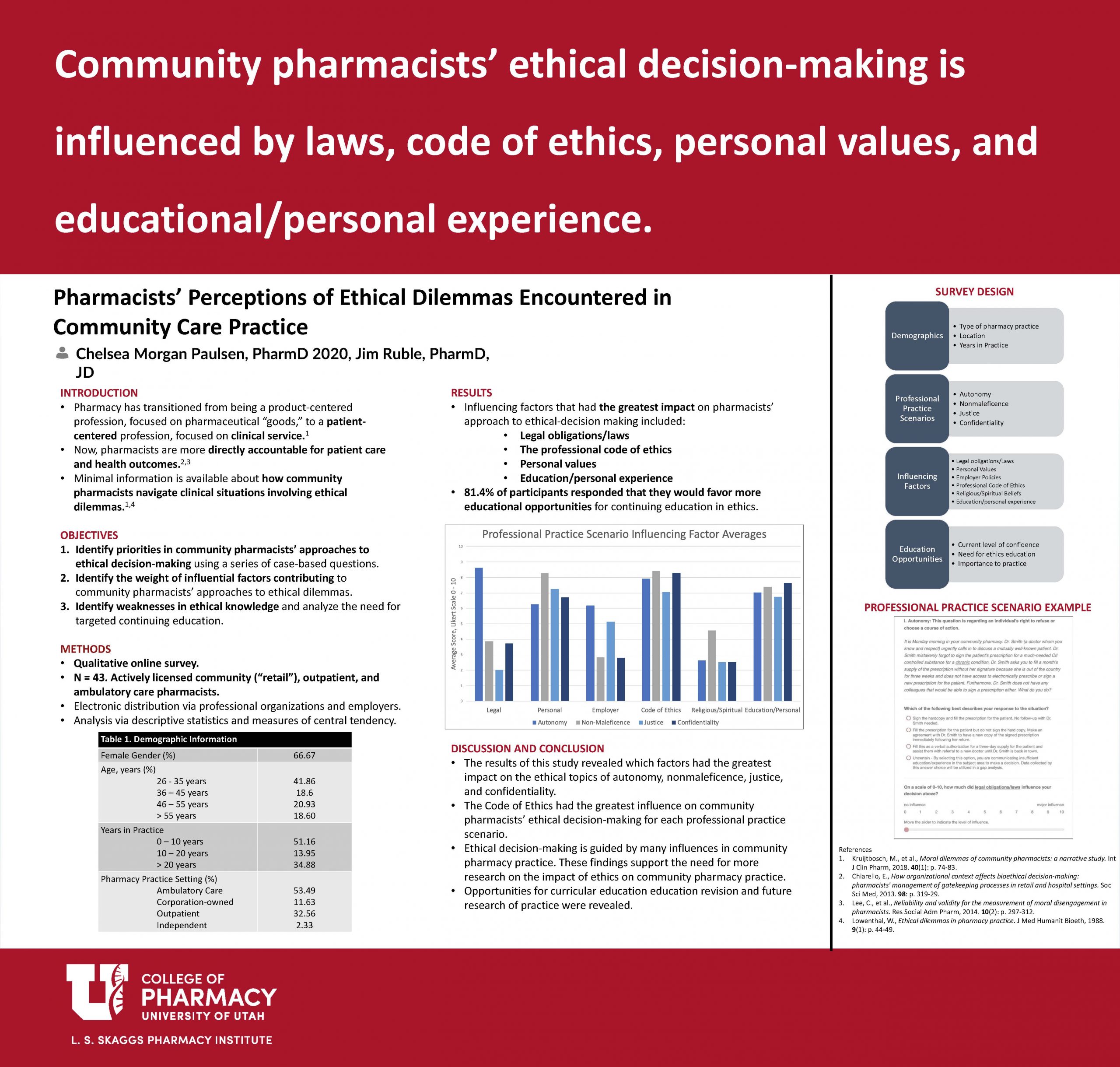Chelsea
Pharmacists’ Perceptions of Ethical Dilemmas Encountered in Community Care Practice
April 28, 2020 in College of Pharmacy, Virtual Poster Session Spring 2020

ABSTRACT
Background
This descriptive study identifies priorities in community pharmacists’ approaches to ethical dilemmas using a survey of case-based questions. The study results provide useful information about the current status of pharmacists’ ethical decision-making confidence. Factors that influence ethical decisions were identified, and how much each factor contributes to a pharmacist’s approach to ethical dilemmas was quantified.
There is an immediate need to describe the ethical reasoning capabilities of community pharmacists. What was once a product-focused industry, pharmacy has now become more patient-focused [1-3]. This shift in clinical responsibility requires pharmacists to analyze greater amounts of information. The available research on ethical awareness of community pharmacists provides some insight into the frequency and type of ethical dilemmas encountered in practice [4, 5]. Building on available research, this study sought to characterize the factors that influence community pharmacists’ decision-making processes.
Methods
A qualitative, anonymous survey was used to collect information about community pharmacists’ approaches to ethical dilemmas. The online survey was distributed electronically to community pharmacists in the United States. The ethics topics covered included autonomy, beneficence, justice, and confidentiality. The survey revealed insight into contributing factors to pharmacists’ approaches to ethical dilemmas.
This study compared influences on community pharmacists’ approaches to ethical decision-making and the weighting of each influence. Descriptive statistics and measures of central tendency were used to analyze results.
Results
It was found that personal values, code of ethics, and education/personal experience had the greatest influence on ethical decision-making when it came to the principles of nonmaleficence, justice, and confidentiality. Overall, most survey participants reported that ethical decision-making is an area where they would favor more educational opportunities.
Conclusions
This study revealed factors that influence pharmacists’ ethical decision-making in a community pharmacy setting. More importantly, it identified opportunities for curricular education revision, continuing professional education, and future targeted research.
